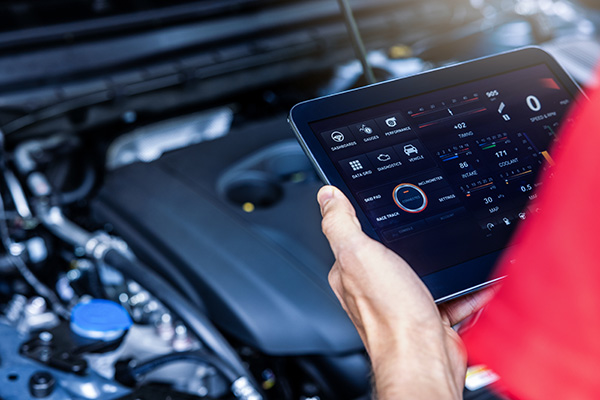
Modern vehicles are more advanced than ever, packed with sophisticated technology that makes them safer, more efficient, and more reliable. Along with these advancements comes a greater reliance on computer systems to monitor and manage your car’s various functions. When something goes wrong, computer diagnostics play a key role in identifying mechanical problems quickly and accurately. Understanding how this process works can help you appreciate the value of these tools and why professional inspections are so important.
What Are Computer Diagnostics
Computer diagnostics involve using specialized scanning tools to communicate with your car’s onboard computer systems. These systems, often referred to as the engine control module (ECM) or powertrain control module (PCM), constantly monitor data from sensors throughout your vehicle.
When the system detects something outside of normal parameters, it stores a trouble code and often triggers a dashboard warning light, like the check engine light. Diagnostic tools read these codes and provide technicians with information about which part of the vehicle is experiencing a problem.
The Role of Sensors
Your car relies on numerous sensors to track everything from engine temperature and air-fuel mixture to exhaust emissions and wheel speed. Each sensor sends data to the vehicle’s computer in real-time. If a sensor detects an abnormal reading, it signals the computer to log a code and potentially adjust performance to protect the engine or other systems.
For example, an oxygen sensor monitors the level of oxygen in your exhaust to help manage fuel efficiency and emissions. A faulty oxygen sensor can affect fuel consumption and engine performance. Through diagnostics, technicians can pinpoint the exact faulty sensor rather than guessing and replacing unnecessary parts.
Reading Trouble Codes
When a technician connects a diagnostic scanner to your car, it retrieves stored trouble codes from the computer. These codes are standardized and usually consist of a letter followed by four numbers (such as P0301 for a cylinder misfire).
While the code points to a general area or system, additional testing and expertise are often needed to confirm the exact cause of the issue. For example, a code indicating a misfire doesn't always mean a spark plug problem; it could also involve fuel injectors, ignition coils, or even a vacuum leak.
Beyond the Check Engine Light
Computer diagnostics aren’t just for the check engine light. Many systems in your car, including transmission, brakes, airbags, and even climate control, are managed by separate modules that store trouble codes. Diagnostics can uncover issues like ABS malfunctions, transmission slipping, or sensor failures in these additional systems.
By reading these codes, technicians can diagnose problems that might not have obvious symptoms yet but could lead to bigger issues if ignored.
Benefits of Computer Diagnostics
One of the biggest advantages of computer diagnostics is the ability to identify problems quickly and accurately. Rather than relying on guesswork, technicians use precise data to locate faults. This reduces repair time and helps avoid unnecessary part replacements.
Early detection is another major benefit. By catching small problems before they become larger (and more expensive), diagnostics can save you money and prevent unexpected breakdowns.
Why Professional Interpretation Matters
While some drivers buy handheld code readers to check their vehicles at home, interpreting the codes correctly requires expertise. A single trouble code can have multiple potential causes, and without the right experience, you might end up replacing parts that aren’t actually faulty.
Our technicians combine code data with hands-on inspections, performance testing, and their knowledge of vehicle systems to accurately diagnose and repair the issue.
The Importance of Regular Inspections
Routine inspections and diagnostic checks can uncover hidden issues before they cause major damage. Even if your car isn’t displaying a warning light, small inefficiencies or early-stage faults can be identified and addressed during a professional diagnostic service.
This proactive approach helps maintain performance, improve fuel efficiency, and extend your vehicle’s lifespan.
Trust The Car Guys in Nevada and North Carolina
If your check engine light is on or you suspect your vehicle isn’t running as it should, don’t wait for the problem to get worse. The expert technicians at The Car Guys in Nevada and North Carolina use advanced diagnostic tools to accurately identify and repair mechanical problems.
Schedule your diagnostic service in one of our locations today, and drive confidently knowing your car is in top condition.
- 10177 West Charleston Blvd. Suite P Summerlin, NV
- 7786 W. Sahara Ave. Las Vegas, NV
- 6311 Carolina Beach Rd. Wilmington, NC
- 8006 Market St. Wilmington, NC